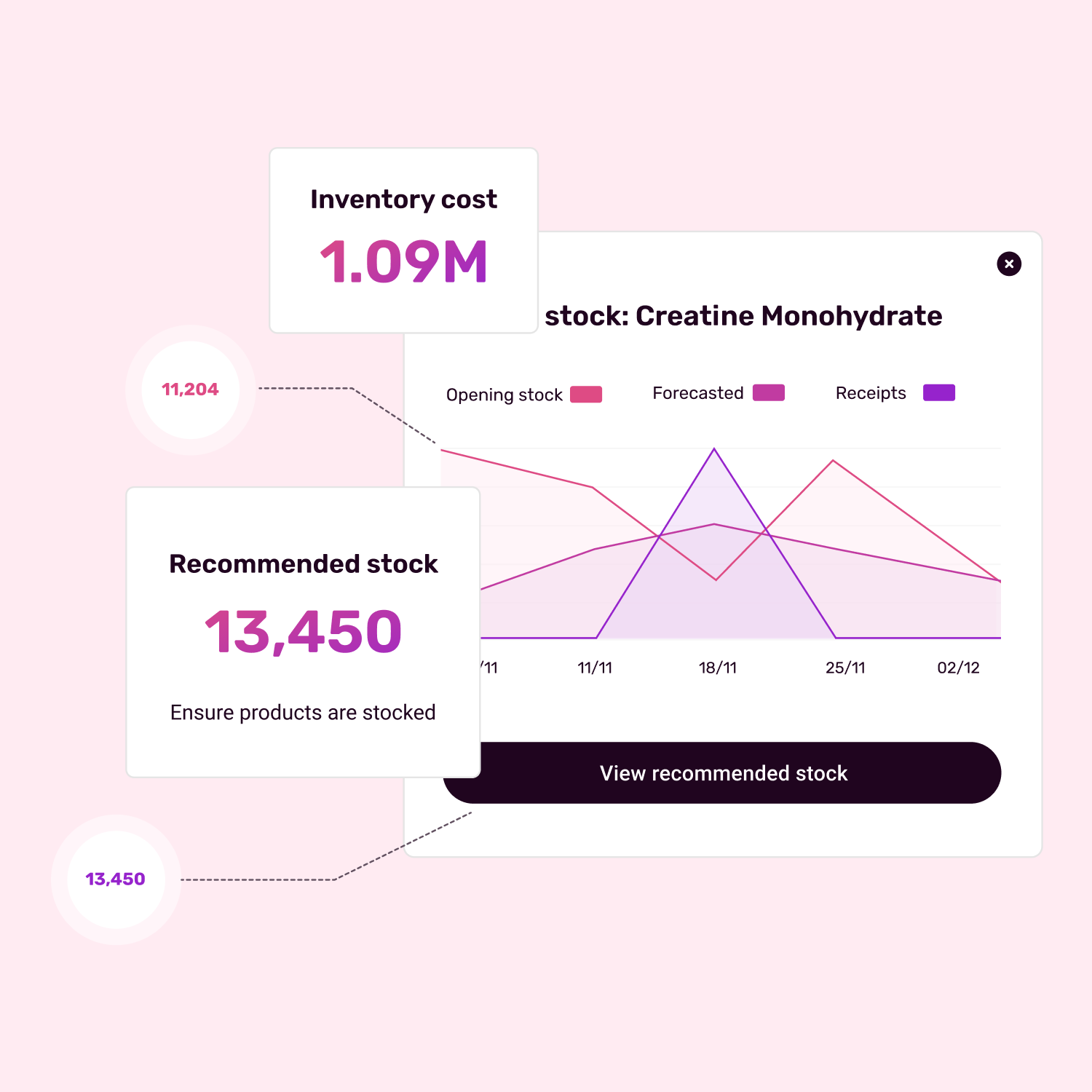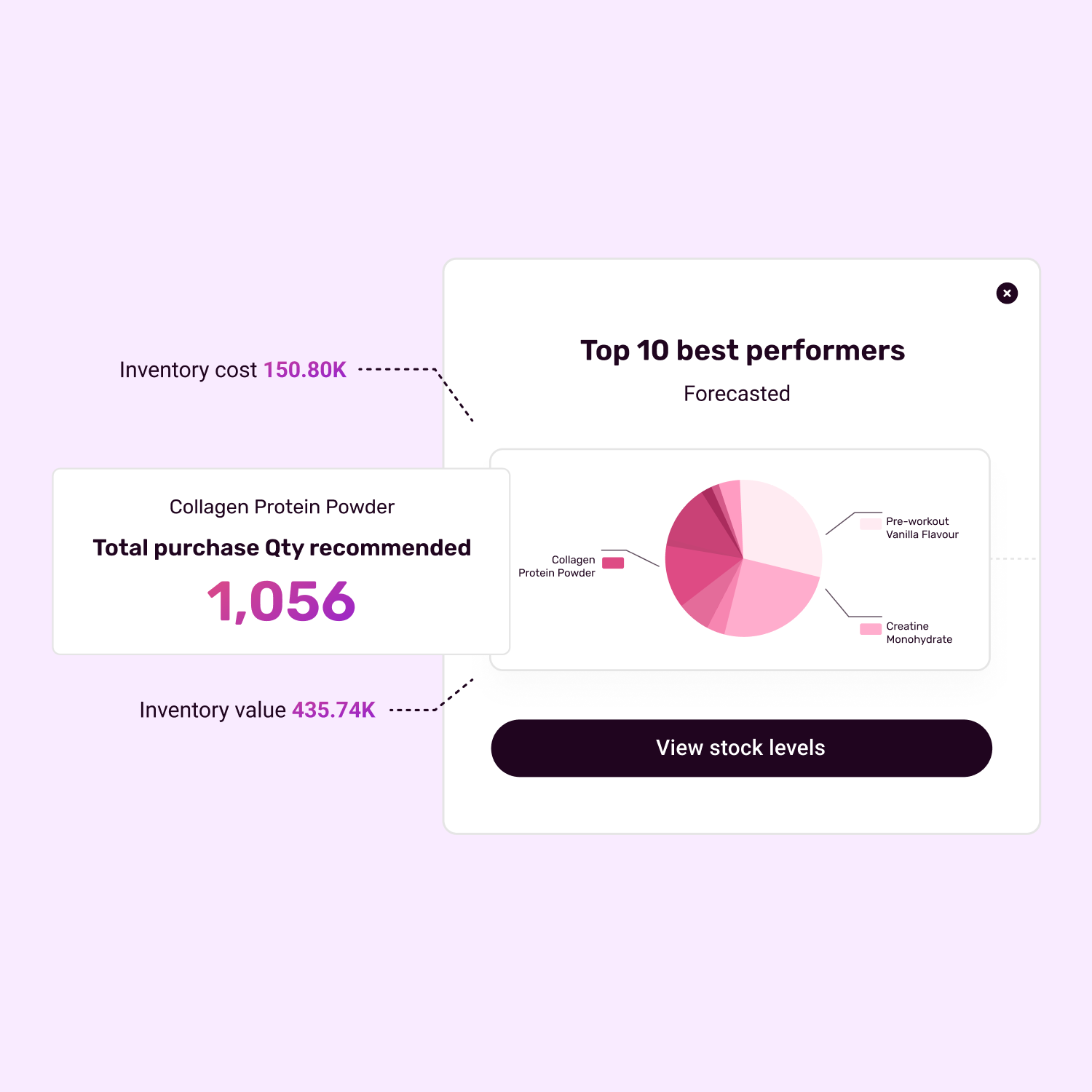Introducing fulfilmentcrowd's latest Fulfilment Network Partner, Fairfield, with our partners Haith's based in Louth, Lincolnshire!
The rise of predictive fulfilment: Can AI anticipate what customers will buy next?
Audio reader
.jpg?width=300&name=What%E2%80%99s-Next-for-Demand-Forecasting-blog-advert%20(1).jpg)
Download your copy of the Demand Forecasting eBook
Reviewing predictive analytics, AI, and sustainability in inventory management.
Download the eBookImagine if your fulfilment centre had a crystal ball.
Not the flaky kind found at the back of a seaside gift shop, but one powered by algorithms, behavioural data, and machine learning. One that could say, with confidence, “Charlotte from Bristol will absolutely want that air fryer with her next athleisure haul.” Welcome to the (not-so-distant) future of predictive fulfilment - where technology doesn’t just respond to customer behaviour, it anticipates it.
For eCommerce, retail, and fulfilment pros, it could be the answer to three eternal headaches:
- The astronomical cost of returns
- Return fraud and serial abusers
- The chaos of reverse logistics.
Let’s unpack how AI could flip the script, before your customers flip the lid on another unwanted order.
The return problem that just keeps giving (back)
Returns are the clingy ex of the eCommerce world. No matter how far you grow, they keep circling back - and they’re costly. In the UK alone, returns cost retailers £7 billion a year.

Free returns have become a consumer expectation, not a perk. But behind the scenes, that generosity adds up fast:
- Warehousing and restocking costs
- Labour for inspecting and repackaging
- Lost sales opportunity during stock limbo
- Environmental damage from extra shipping
- The soul-crushing moment your warehouse team has to handle another worn-once party dress with no tags
And don’t even get us started on bracketing, aka the “buy three sizes, keep one, return two” trend fuelled by impatient shoppers and influencer haul culture. (No shade, but we see you, TikTok).
AI-driven predictive fulfilment doesn’t just react to returns. It prevents them.
What is predictive fulfilment anyway?
Let’s break it down. Predictive fulfilment uses AI and machine learning to forecast what customers will want, when they’ll want it, and even where they’ll want it delivered. Think of it as playing chess with your customers - and being five moves ahead (sometimes even more).
Here’s what it can predict:
- Purchase intent - based on past behaviour, clicks, abandoned carts, and product interest
- Preferred sizes/colours - reducing size-related returns before they happen
- Cross-selling combos - “You bought the wireless earbuds; you’ll probably want a charging case too” (cue: “OMG how did you know?!”)
- Geographic demand - stocking what’s hot where it’s hot to cut delivery miles and delays
Retailers like Amazon have been experimenting with this for years. Remember “anticipatory shipping”? It's the concept of sending products to a distribution hub before the customer even places the order. Eerie? Maybe. Effective? Absolutely.
Goodbye gut feeling, hello machine learning
The secret behind predictive fulfilment is good old-fashioned data; the kind your brand is probably already sitting on, but not fully leveraging.
We’re talking:
- Product return rates
- Reasons for return (size, quality, buyer’s remorse)
- Reviews and ratings
- CRM and purchase history
- Real-time behavioural data
With AI, this isn’t just analysis. It’s insight in action.
For example, if your platform notices a spike in interest for garden furniture in Manchester every March, AI can tell your fulfilment network to stock up locally before the orders flood in. Less shipping time = fewer returns due to buyer’s impatience. Boom.
Battling return fraud with predictive tech
Let’s address the awkward part. Some returns are... well, dodgy.
Return fraud is a growing issue, costing UK retailers hundreds of millions each year. From wardrobing (wearing an item once before returning) to outright fake returns (swapping a high-value item for a dupe or brick in a box), it’s enough to make your returns manager cry into their inventory spreadsheet.
AI doesn’t just fight fraud, it spots the patterns before they escalate:
- Identifying serial returners
- Tracking unusually high return rates per customer
- Flagging suspicious activity (e.g. repeat returns on high-ticket items just before policy cut-off)
- Using image recognition to verify item conditions
Predictive fulfilment allows you to treat genuine customers generously and protect yourself from the handful who take the mickey.
The reverse logistics glow-up
Reverse logistics has long been the unglamorous cousin of last-mile delivery. But it’s where brands win or lose loyalty - and a stack of cash.
Predictive fulfilment helps optimise reverse logistics in three big ways:
-
Dynamic return routing
AI can recommend the most cost-efficient route for returned items, whether that’s back to warehouse, to a resale partner, or direct to recycling.
-
Real-time decision-making
If AI knows the item is low-value or high-risk (e.g. opened beauty products), it can suggest refunding without return. Saves the shipping cost and the warehouse hassle.
-
Automated inspection
AI-assisted scanning and sorting in fulfilment centres speeds up checks and triage. Think fewer manual inspections, fewer errors, faster turnaround.
Bottom line: better reverse logistics = faster resale or repurposing = recouped value.


Better experiences, lower returns
This isn’t just about cost-cutting. Predictive fulfilment improves customer experience – and when you get that right, returns fall off a cliff.
Here’s how:
- Smarter recommendations = fewer misfit items
- Accurate sizing guides = less “this doesn’t fit” disappointment
- Pre-emptive service = flagging likely questions before they’re asked
- Faster fulfilment = reduced remorse window (you know, that period where customers change their mind before it even ships)
Add to that AI-powered chatbots that suggest different sizes or related items in the moment, and you’re not just reducing returns, you’re increasing order value.
Sustainability: The quiet winner
Returns aren’t just expensive; they’re wasteful. In 2022, approximately 23 million returned fashion items were sent to landfill or incinerated in the UK, generating 750,000 tonnes of CO₂ emissions. Predictive fulfilment helps cut this down by:
- Reducing over-ordering and bracketing
- Avoiding unnecessary re-shipping
- Powering better stock management (less dead stock = less end-of-season waste)
- Supporting circular economy practices with smarter routing
You get greener ops. Your customers get bragging rights for shopping consciously. Everyone wins.
So… should you trust AI to read your customers’ minds?
We know, we know, AI isn’t perfect. It won’t always get it right. Sometimes, customers behave irrationally (we’ve all bought an ice cream maker in winter on impulse).
But here’s the thing: AI isn’t replacing human insight; it’s augmenting it. It gives your team superpowers.
You still need merchandisers, marketers, and ops managers making the big calls. But wouldn’t it be nice if they had a few million data points whispering in their ear?
The tech’s already here. The question is: are you using it? And are you using it to its full capability?
Predicting the future is the future
If you’re still treating fulfilment as a reactive function - ship, receive, repeat - it’s time to rethink. Predictive fulfilment gives you the power to anticipate, prevent, and delight. It’s not just about what goes out the door. It’s about what doesn’t come back through it.
In a market where margins are tight, sustainability is non-negotiable, and consumers expect magic, predictive fulfilment is the ace up your sleeve.
And yes, it may not be an actual crystal ball. But it’s pretty damn close.
Ready to see how predictive fulfilment could transform your ops
Looking for more industry insights?
Check out our other recommendations just for you!
See allfulfilmentcrowd integrates with both Amazon FBA and FBM! Discover which fulfilment process is the best option to grow your business.
Improve returns and improve customer experience with fulfilmentcrowd’s Delivery Assured portal. Automate processes, reduce costs, and protect your brand.






 By Austin Waddecar
By Austin Waddecar




